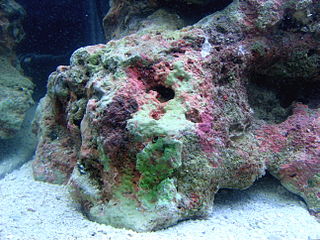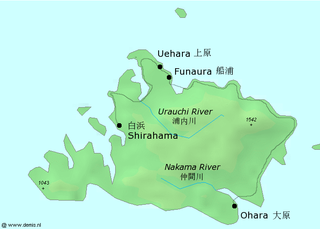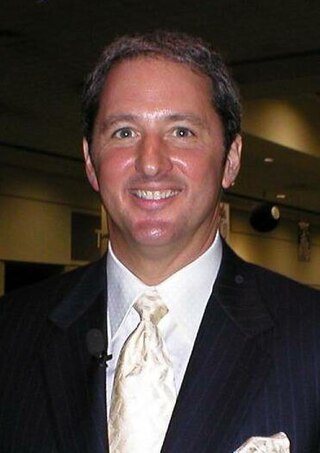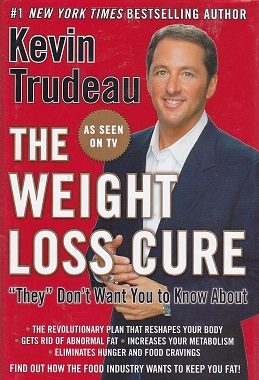Related Research Articles

A dietary supplement is a manufactured product intended to supplement a person's diet by taking a pill, capsule, tablet, powder, or liquid. A supplement can provide nutrients either extracted from food sources, or that are synthetic. The classes of nutrient compounds in supplements include vitamins, minerals, fiber, fatty acids, and amino acids. Dietary supplements can also contain substances that have not been confirmed as being essential to life, and so are not nutrients per se, but are marketed as having a beneficial biological effect, such as plant pigments or polyphenols. Animals can also be a source of supplement ingredients, such as collagen from chickens or fish for example. These are also sold individually and in combination, and may be combined with nutrient ingredients. The European Commission has also established harmonized rules to help insure that food supplements are safe and appropriately labeled.

Calcium ions (Ca2+) contribute to the physiology and biochemistry of organisms' cells. They play an important role in signal transduction pathways, where they act as a second messenger, in neurotransmitter release from neurons, in contraction of all muscle cell types, and in fertilization. Many enzymes require calcium ions as a cofactor, including several of the coagulation factors. Extracellular calcium is also important for maintaining the potential difference across excitable cell membranes, as well as proper bone formation.

The Okinawa diet describes the traditional dietary practices of indigenous people of the Ryukyu Islands, which were claimed to have contributed to their relative longevity over a period of study in the 20th century.

A multivitamin is a preparation intended to serve as a dietary supplement with vitamins, dietary minerals, and other nutritional elements. Such preparations are available in the form of tablets, capsules, pastilles, powders, liquids, or injectable formulations. Other than injectable formulations, which are only available and administered under medical supervision, multivitamins are recognized by the Codex Alimentarius Commission as a category of food.

Calcium citrate is the calcium salt of citric acid. It is commonly used as a food additive (E333), usually as a preservative, but sometimes for flavor. In this sense, it is similar to sodium citrate. Calcium citrate is also found in some dietary calcium supplements. Calcium makes up 24.1% of calcium citrate (anhydrous) and 21.1% of calcium citrate (tetrahydrate) by mass. The tetrahydrate occurs in nature as the mineral Earlandite.

Quackwatch is a United States-based website, self-described as a "network of people" founded by Stephen Barrett, which aims to "combat health-related frauds, myths, fads, fallacies, and misconduct" and to focus on "quackery-related information that is difficult or impossible to get elsewhere". Since 1996 it has operated the alternative medicine watchdog website quackwatch.org, which advises the public on unproven or ineffective alternative medical remedies. The site contains articles and other information criticizing many forms of alternative medicine.
Essiac is a herbal tea promoted as an alternative treatment for cancer and other illnesses. There is no evidence it is beneficial to health. In a number of studies Essiac either showed no action against cancer cells, or actually increased the rate of cancer growth.

Live rock is rock from the ocean that has been introduced into a saltwater aquarium. Along with live sand, it confers to the closed marine system multiple benefits desired by the saltwater aquarium hobbyist. The name sometimes leads to misunderstandings, as the "live rock" itself is not actually alive, but rather is simply made from the aragonite skeletons of long dead corals, or other calcareous organisms, which in the ocean form the majority of coral reefs. When taken from the ocean it is usually encrusted with coralline algae and inhabited by a multitude of marine organisms. The many forms of micro and macroscopic marine life that live on and inside of the rock, which acts as an ideal habitat, give it the name "live rock".

The açaí palm, Euterpe oleracea, is a species of palm tree (Arecaceae) cultivated for its fruit, hearts of palm, leaves, and trunk wood. Global demand for the fruit has expanded rapidly in the 21st century, and the tree is cultivated for that purpose primarily.
TrimSpa was a dietary supplement designed for weight loss, marketed by the company Goen Technologies and headed by Alexander Szynalski. The ephedra-based supplement was marketed by TrimSpa to help "stave off hunger", until ephedra was banned from the United States. TrimSpa's parent company, Goen Technologies, filed for bankruptcy protection in May 2008.

Iriomote Island is the largest of the Yaeyama Islands of Japan, and the second largest in Okinawa Prefecture after Okinawa Island itself.

Kevin Trudeau is an American author, salesman, and television personality known for promotion of his books and resulting legal cases involving the US Federal Trade Commission. His ubiquitous late-night infomercials, which promoted unsubstantiated health, diet, and financial advice, earned him a fortune but resulted in civil and criminal penalties for fraud, larceny, and contempt of court.

Juice Plus is a branded line of dietary supplements. It is produced by Natural Alternatives International of San Marcos, California, for National Safety Associates. Introduced in 1993, the supplements are distributed by NSA via multi-level marketing. Juice Plus supplements contain fruit and vegetable juice extracts with added vitamins and nutrients.

Vinpocetine is a synthetic derivative of the vinca alkaloid vincamine, differing by the removal of a hydroxyl group and by being the ethyl rather than the methyl ester of the underlying carboxylic acid. Vincamine is extracted from either the seeds of Voacanga africana or the leaves of Vinca minor.

The Weight Loss Cure "They" Don't Want You to Know About is a weight loss book written by salesman and convicted fraudster Kevin Trudeau. It was released in April 2007 by Alliance Publishing.
Liquid oxygen supplements are products that claim to add extra oxygen to the human body, most often through a chemical process in the digestive system, like the breakdown of hydrogen peroxide or magnesium peroxide. While the FDA describes these products as being inert, and has penalized some producers who made explicit medical claims, it has not prohibited their sale.

Black salve, also known by the brand name Cansema, is an ineffective and unsafe alternative cancer treatment. The product is commonly classified as an escharotic—a topical paste which destroys skin tissue and leaves behind a scar called an eschar. Escharotics were widely used to treat skin lesions in the early 1900s, but have since been replaced by safer and more effective treatments. Escharotics, such as black salves, are currently advertised by some alternative medicine marketers as treatments for skin cancer, often with unsubstantiated testimonials and unsupported claims of effectiveness.

The Dietary Supplement Health and Education Act of 1994 ("DSHEA"), is a 1994 statute of United States Federal legislation which defines and regulates dietary supplements. Under the act, supplements are regulated by the FDA for Good Manufacturing Practices under 21 CFR Part 111. The act was intended to exempt the dietary and herbal supplement industry from most FDA drug regulations, allowing them to be sold and marketed without scientific backing for their health and medical claims.

Calcium supplements are salts of calcium used in a number of conditions. Supplementation is generally only required when there is not enough calcium in the diet. By mouth they are used to treat and prevent low blood calcium, osteoporosis, and rickets. By injection into a vein they are used for low blood calcium that is resulting in muscle spasms and for high blood potassium or magnesium toxicity.
References
- 1 2 Straub DA (June 2007). "Calcium supplementation in clinical practice: a review of forms, doses, and indications". Nutr Clin Pract. 22 (3): 286–96. doi:10.1177/0115426507022003286. PMID 17507729.
- 1 2 Jaroff, Leon (14 March 2003). "Coral Calcium: A Barefoot Scam". Time. Archived from the original on 5 June 2003.
- ↑ Barrett, Stephen (13 September 2012). "A Critical Look at Robert Barefoot and Coral Calcium". Quakcwatch. Archived from the original on 12 March 2018. Retrieved 8 March 2018.
- ↑ "187 Fake Cancer "Cures" Consumers Should Avoid". FDA. 25 April 2017. Archived from the original on 15 November 2017.
- 1 2 "FTC Charges Marketers of Coral Calcium Supreme Dietary Supplement and a Pain-Relief Product With Making False and Unsubstantiated Claims". Federal Trade Commission. 2003-06-10. Archived from the original on 2009-01-18. Retrieved 2009-01-15.
- 1 2 "Consumer Advisory: Coral Calcium". National Center for Complementary and Integrative Health. November 2004. Archived from the original on 18 October 2004.
- 1 2 Blumberg S (September 2004). "Is coral calcium a safe and effective supplement?". J Am Diet Assoc. 104 (9): 1335–6. doi:10.1016/j.jada.2004.07.022. PMID 15354144.